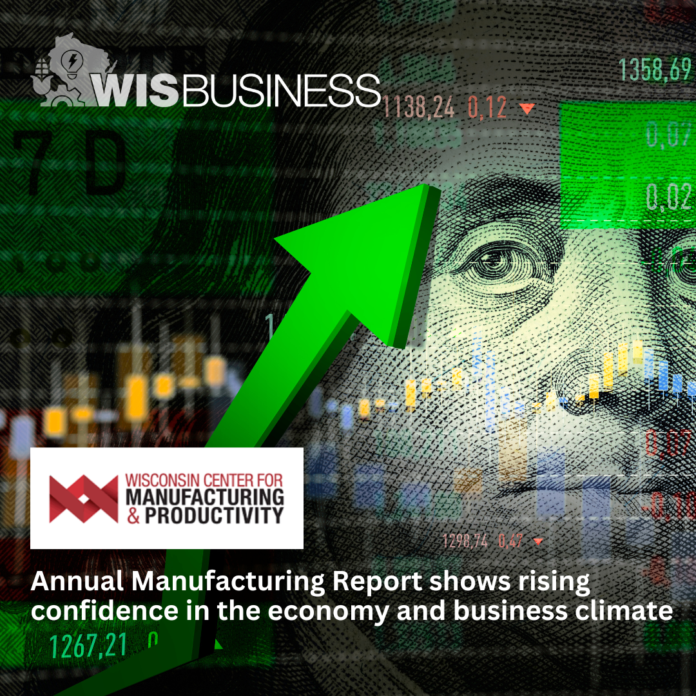The Wisconsin Center for Manufacturing and Productivity’s annual report shows confidence in the state’s economy and business climate has risen.
The report was compiled after 405 interviews and four focus groups across the state.
It shows that confidence in Wisconsin’s economy is rising. This year saw 10% of manufacturing executives who were not confident in the future of companies’ finances while 40% said they were very confident in their companies’ futures. Last year 12% were not confident and 36% were very confident.
This year was the first time since 2021 that more respondents saw Wisconsin’s economy growing rather than slowing down, with 32% seeing growth in the future and 20% predicting a slower economy or recession ahead.
Still, a plurality, 46%, said the state’s economy is mostly flat.
The increase in confidence compared to last year is most prevalent among smaller businesses with fewer than 50 employees and those that make less than $1 million in revenue. But larger companies are still more confident than smaller businesses, with 94% of those that make more than $5 million revenue confident compared to 78% of those that make less than $1 million in revenue.
And while companies are expecting revenue and productivity to increase, uncertain market conditions are slowing capital spending.
But companies are also still most concerned about attracting qualified workers and keeping them. The survey shows 51% of respondents ranked finding and attracting qualified workers a 9 or 10 out of 10 in terms of importance to their company, and 49% saying keeping qualified employees is highly important.
Even so, a smaller share of respondents are considering increasing wages and salaries or offering employee training than last year. The two categories are still highest on the list of what companies are considering changing, but each is down seven and three points respectively.
More companies are considering using artificial intelligence and automating or implementing new technologies than last year too.
Sticking with automation, the gap between executives who believe automation is important and those who believe it’s not important has only grown over the past five years. This year 72% said automation is important to their company’s future, compared to 64% last year and 61% in 2021.
Financing and budget obstacles are the most common barriers to automation, with 35% saying it’s their top concern. But 41% said there are no obstacles.
AI use has also more than tripled over the past three years, growing to 35% this year from 10% in 2023. Still, 40% said they have no plans of implementing AI in the future, but that’s a significant drop from the 72% in 2023 who said they had no plans to implement AI in the future.
See the report here.






